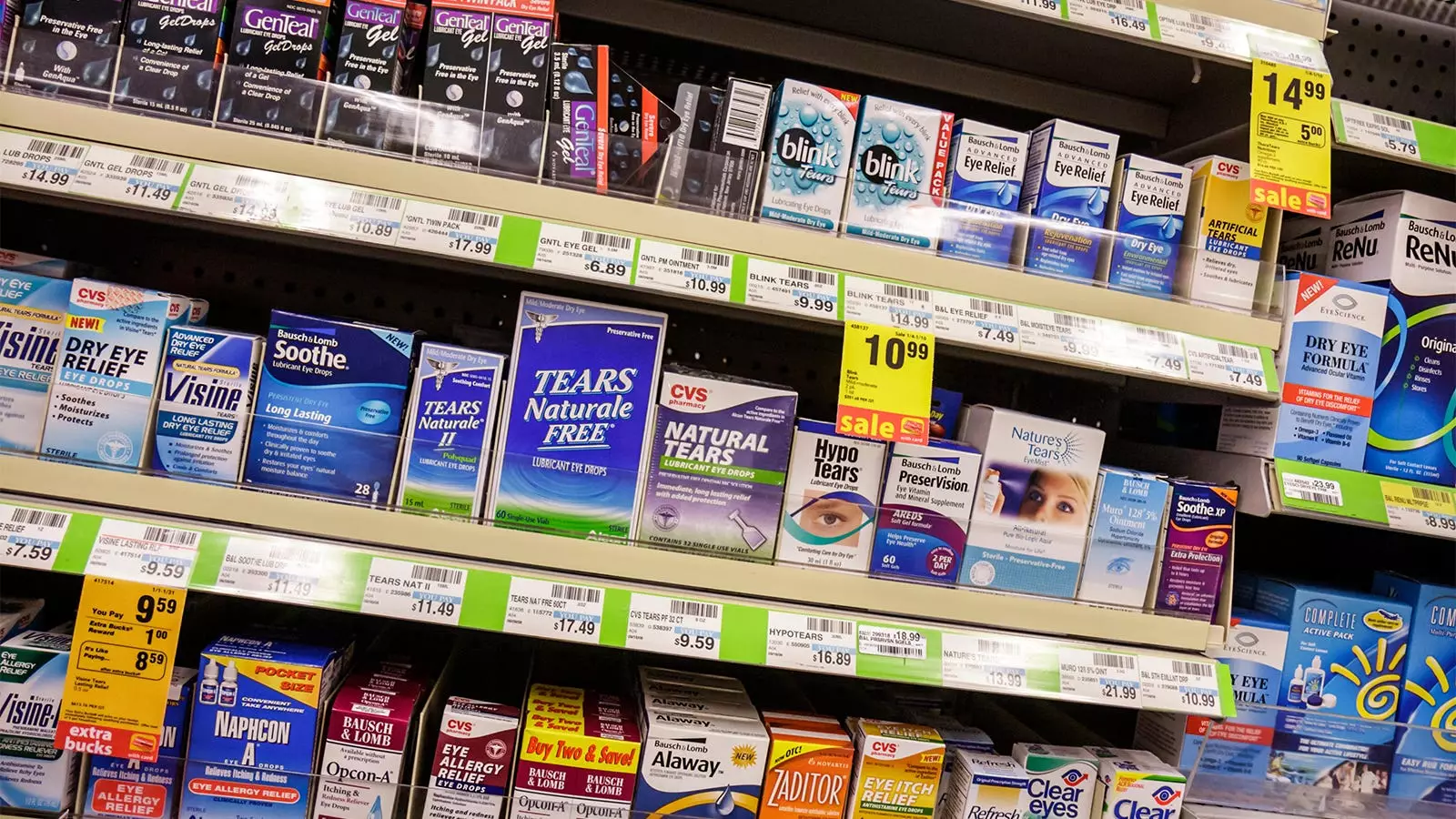The past year has brought a multitude of concerns surrounding over-the-counter (OTC) eye care products. Government warnings and company recalls of ocular washes, drops, tears, and ointments have sent shockwaves through the industry and left consumers wary. A viewpoint overview in JAMA Ophthalmology highlights the two-fold worry among U.S. ophthalmologists regarding the current state of the OTC industry. On one side, there is an apparent lack of adequate protection for public health due to limited regulatory oversight, as evidenced by recent eye drop recalls. On the other side, there is a dearth of information available to the medical community, making it difficult to provide patients with empirically informed guidance. The ramifications of these issues are far-reaching and necessitate a critical examination of the existing system.
The perception of eye care products as benign and free from harm is prevalent among the general public. However, Timothy Janetos, MD, MBA, of Northwestern University Feinberg School of Medicine, warns that there is a small potential for harm, likely less than 1%. Despite the overwhelming safety of these products, issues with quality and contamination go under-recognized and under-reported. This lack of awareness contributes to a widespread misconception that OTC eye care products are universally safe. Consequently, patients often seek guidance from their physicians, but reliable information on these products is unfortunately lacking. Physicians are left to rely on manufacturers’ samples, market trends, and anecdotal experience, which raises further concerns about the efficacy and safety of these products.
This year alone, there have been several product recalls that have magnified public doubts about the safety of OTC eye preparations. In February, EzriCare Artificial Tears and Delsam Pharma’s Artificial Tears, manufactured by Global Pharma Healthcare, were recalled due to bacterial contamination concerns. These products were linked to infections with the multidrug-resistant pathogen Pseudomonas aeruginosa. By mid-May, the drug-resistant strain associated with these eye drops had been found in 81 people across 18 states, with severe consequences, including deaths, surgical enucleations, and vision loss. In March, Pharmedica recalled lots of its anti-irritation Purely Soothing 15% MSM eye drops due to compromised sterility. Although no adverse events were reported, the recall highlighted the potential risks associated with these products. Additionally, in September, the FDA sent warning letters to eight companies, including CVS and Walgreens, for marketing unapproved products and quality issues related to product sterility. The recent discovery of unsanitary conditions and positive bacterial tests at a manufacturing plant led to the removal of 26 eye care products from pharmacy shelves. These recalls and warnings underscore the urgent need for stricter regulations and improved oversight in the industry.
The OTC eye care market is substantial, with revenue in the U.S. reaching nearly $1.6 billion in 2022. Approximately 117 million Americans used various washes and drops for dry eyes, red eyes, and itching in 2020. Despite the size and influence of this market, it remains largely self-regulated, posing significant risks to consumers. Janetos emphasizes the impossibility of regulating this industry like the drug industry due to its sheer magnitude. However, he believes that the FDA could do more to ensure consumer safety. Inspections of manufacturing sites have decreased since the COVID-19 pandemic, and more frequent inspections are necessary to maintain product quality. Furthermore, the FDA’s OTC drug policies, particularly the exemption of products from preapproval review, raise concerns regarding consumer safety. There is a need for more stringent guidelines on product composition, preservatives, and potential allergens to minimize potential harm to users.
To address the lack of objective data on commonly sold eye care products, Janetos and his colleagues are developing an open-source centralized database. This database aims to provide patients and ophthalmologists with reliable information on product characteristics, allergens, reported adverse events, pricing, and patient satisfaction. The envisioned database would be a constantly updated “Wikipedia” for OTC eye medications, offering valuable insights for informed decision-making. This initiative seeks to fill the void left by the cumbersome and underutilized FDA reporting system. With metrics such as average prices and patient reviews, this database could empower both patients and clinicians in navigating the overwhelming array of OTC eye care products.
The concerns surrounding over-the-counter eye care products are significant and demand urgent attention. The inadequate regulatory oversight, under-recognized harm, and recurring recalls necessitate a critical examination of the existing practices and policies within the industry. Stricter regulations, more frequent inspections, and improved guidelines for product composition are vital to ensure consumer safety. Furthermore, the development of a centralized database can provide invaluable information to both patients and healthcare professionals, fostering informed decision-making and mitigating potential risks. It is imperative that all stakeholders work together to make meaningful changes in the OTC eye care industry to safeguard public health and restore confidence in these products.

Leave a Reply